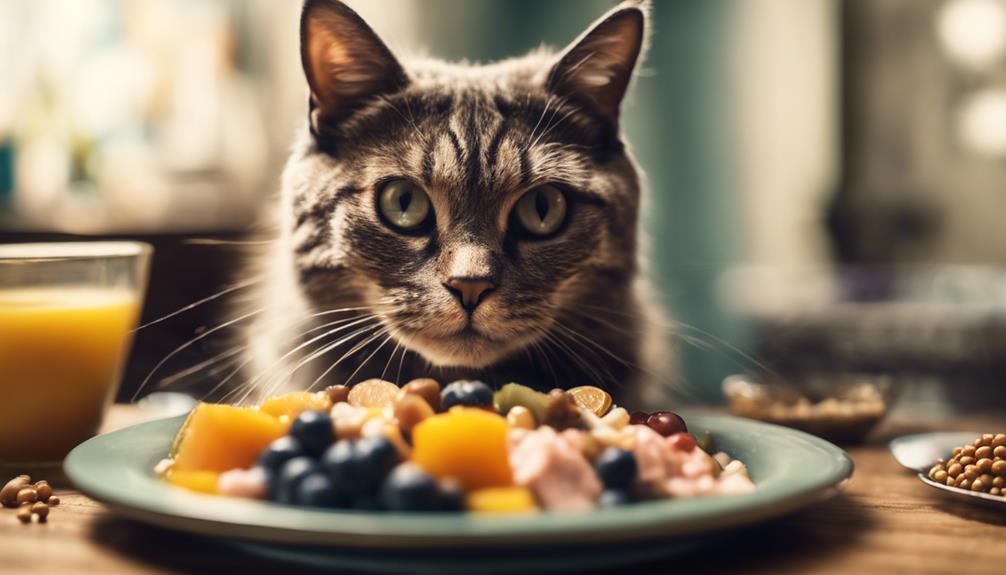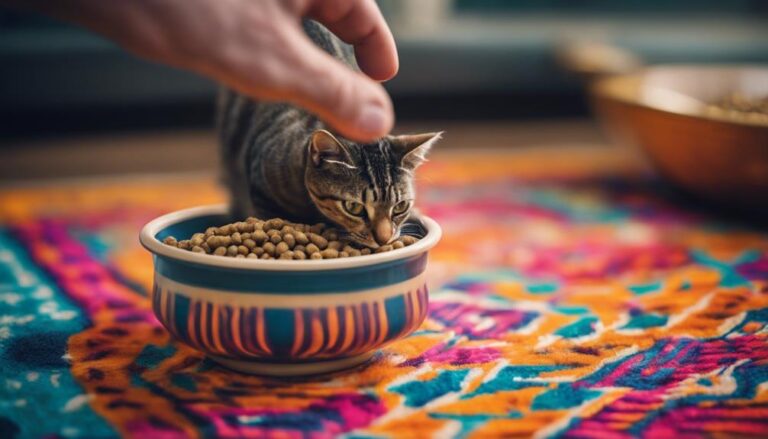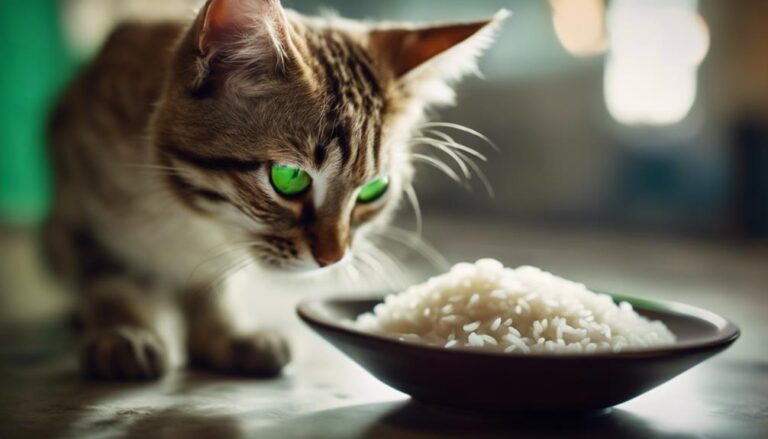If your cat is experiencing skin sensitivities, their diet plays a crucial role in addressing this issue effectively. Ensuring they receive the right nutrients can make a significant difference in their skin health and overall well-being. By understanding the key components of a feline diet tailored for sensitive skin, you can provide your furry friend with the support they need for a healthy coat and skin. Let's explore how specific dietary choices can make a difference for your cat's skin sensitivity and what steps you can take to implement these changes successfully.
Signs of Skin Sensitivity in Cats
If your cat is experiencing skin sensitivity, you may notice signs such as dry, flaky, or scaly skin patches. Sensitive skin in cats can present itself through various indicators like unusual redness or hot skin, bumps, or lumps on their skin. Adult cats with skin sensitivity may also exhibit excessive shedding or bare fur patches, along with obsessive scratching, nibbling, or licking behaviors. These signs are crucial in identifying if your feline friend is struggling with skin sensitivity issues.
Incorporating a balanced and appropriate diet is essential for managing skin sensitivity in cats. The food you provide your cat can significantly impact their skin health. Ensuring that your cat's diet contains the right nutrients can help alleviate skin problems and enhance their overall well-being. By paying attention to the signs of skin sensitivity and making appropriate dietary adjustments, you can promote healthier skin for your beloved feline companion.
Best Protein Sources for Sensitive Cats
When selecting protein sources for sensitive cats, prioritize options like duck and venison for their skin health benefits.
Cats with sensitive skin require high-quality proteins to support their skin health. Duck and venison are excellent choices as they're less common and can be beneficial for cats with food sensitivities.
These protein sources contain essential amino acids crucial for skin repair and maintenance. Opting for easily digestible proteins like duck and venison can help reduce the likelihood of triggering skin sensitivities in your feline companion.
Essential Fatty Acids for Skin Health
You need to understand the importance of essential fatty acids for your cat's skin health. Omega-3 fatty acids help in benefiting the skin, while omega-6 aids in promoting healthy skin.
Make sure to include sources of essential fatty acids like fish oils and certain plant oils in your feline's diet for optimal skin health.
Omega-3 Benefits Skin
Incorporating omega-3 fatty acids into your cat's diet is essential for maintaining healthy skin and alleviating sensitivities. Omega-3 fatty acids, found in sources like fish oil and flaxseed oil, play a crucial role in reducing inflammation and providing relief from itching, ultimately improving your cat's skin health.
These fatty acids also contribute to a shiny coat, enhancing the overall well-being of your feline friend. Introducing omega-3 supplements can help address skin issues caused by sensitivities, supporting a healthier and more comfortable skin condition for your cat.
Consider adding these beneficial fatty acids to your cat's diet to promote optimal skin health and address any sensitivity-related concerns effectively.
Omega-6 Promotes Healthy Skin
For cats with sensitive skin, ensuring proper levels of omega-6 fatty acids in their diet is crucial for promoting healthy skin. Omega-6 fatty acids are essential for maintaining skin barrier function and reducing inflammation in cats with sensitivity issues.
These fatty acids, found in oils like sunflower, safflower, and corn oil, as well as poultry fat, can help alleviate symptoms of dry, flaky skin and promote a shiny coat. Adequate omega-6 levels play a vital role in maintaining skin moisture and preventing excessive shedding in cats prone to sensitivity problems.
Including sources of omega-6 in your cat's diet can significantly improve their skin health and overall well-being.
Sources of EFAs
Consider incorporating essential fatty acids (EFAs) from sources like fish oil and flaxseed oil to support your cat's skin health and address sensitivity issues effectively.
EFAs, such as omega-6 and omega-3, found in fish oil, flaxseed oil, and sunflower oil, play a crucial role in maintaining overall skin health. These EFAs help in skin hydration, reduce itching, and support the skin's lipid barrier function.
When choosing cat food options, look for quality protein sources like fish, poultry, and plant oils to ensure your cat receives adequate EFAs for optimal skin health.
Vitamins for Healthy Skin and Coat
To maintain healthy skin and a shiny coat in your cat, ensuring adequate levels of essential vitamins like A, E, and D is crucial.
Vitamin A plays a significant role in regulating skin cell production and repair, contributing to a smooth and healthy skin surface for your feline friend.
Vitamin E acts as an antioxidant, protecting skin cells from damage caused by free radicals, which can help maintain a vibrant coat.
Vitamin D is essential for skin health, promoting cell growth and repair processes vital for overall skin health in cats.
Choosing the Right Cat Food Brand
Ensure your cat's skin and coat health by selecting the appropriate cat food brand tailored for sensitive skin needs. When choosing the right cat food brand, consider the following:
- Opt for cat foods specifically formulated for sensitive stomach and skin issues, like Purina ONE Sensitive Stomach, Sensitive Skin, Natural Dry Cat Food.
- Look into popular cat food brands such as Purina ONE, Pure Balance, Purina Cat Chow, Hills Science Diet, and IAMS known for addressing skin sensitivities in cats.
- Check customer reviews and ratings to ensure the effectiveness of the cat food brands in managing skin sensitivity in felines.
Tips for Transitioning to a New Diet
Start the transition to a new diet for your cat with a gradual mixing of the new food with the old food over a period of 7-10 days to prevent digestive upset.
During this transition period, monitor your cat's weight, energy levels, and skin condition closely. Offer the new diet in small portions multiple times a day to encourage acceptance.
It's essential to consult with a veterinarian for guidance on transitioning to a new diet, especially for cats with sensitive skin. Keep track of any changes in your cat's behavior or health while introducing the new diet, as this can help you identify any potential issues early on.
Remember to introduce wet cat food as part of the new diet to support your cat's skin health. By following these tips and seeking professional advice, you can ensure a smooth and successful transition to a diet that benefits your cat's sensitive skin.
Frequently Asked Questions
What Is the Best Cat Food for a Cat With Skin Allergies?
For your cat with skin allergies, consider hypoallergenic options like Royal Canin Veterinary or Blue Buffalo Hydrolyzed. Try limited ingredient diets such as Natural Balance L.I.D. or prescription formulas like Purina Pro Plan HA Hydrolyzed. Novel proteins like venison can reduce reactions.
What Can I Give My Cat for Sensitive Skin?
For your cat's sensitive skin, try incorporating high-quality proteins like duck or venison, along with omega-6 and omega-3 fatty acids. Consider antioxidants such as grapeseed and anti-inflammatory ingredients like burdock. Probiotics can also aid in maintaining gut health.
What Cat Food Is Good for Skin Conditions?
For skin conditions in cats, choose cat food with high-quality protein like duck or venison to support skin health. Ensure it contains fatty acids such as omega-6 and omega-3 for a healthy skin and coat.
What Is the Best Protein for Cats With Sensitive Skin?
For cats with sensitive skin, the best protein options are duck and venison. These hypoallergenic sources provide essential amino acids that promote skin health, reduce inflammation, and contribute to a shiny coat. Opt for these to manage skin sensitivities effectively.






